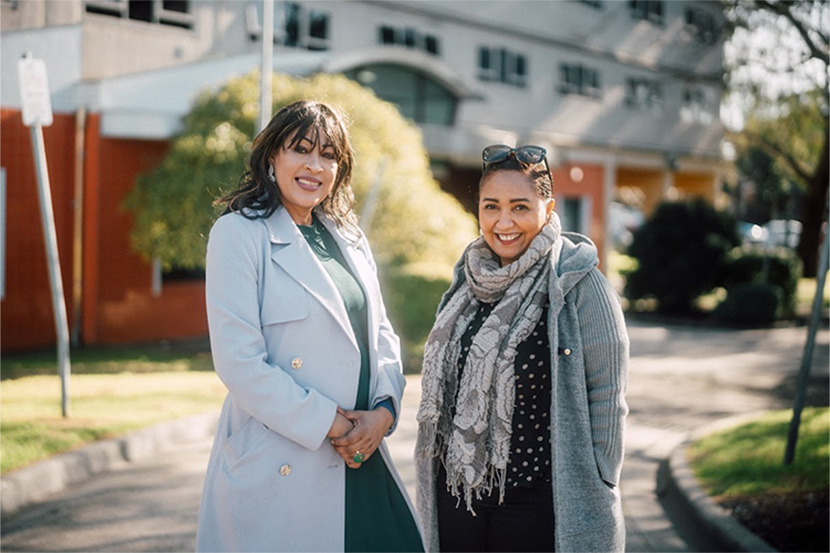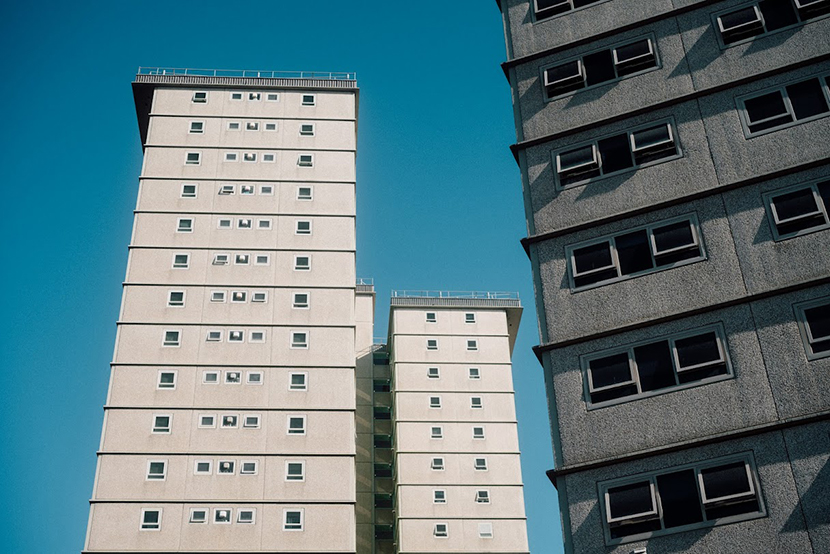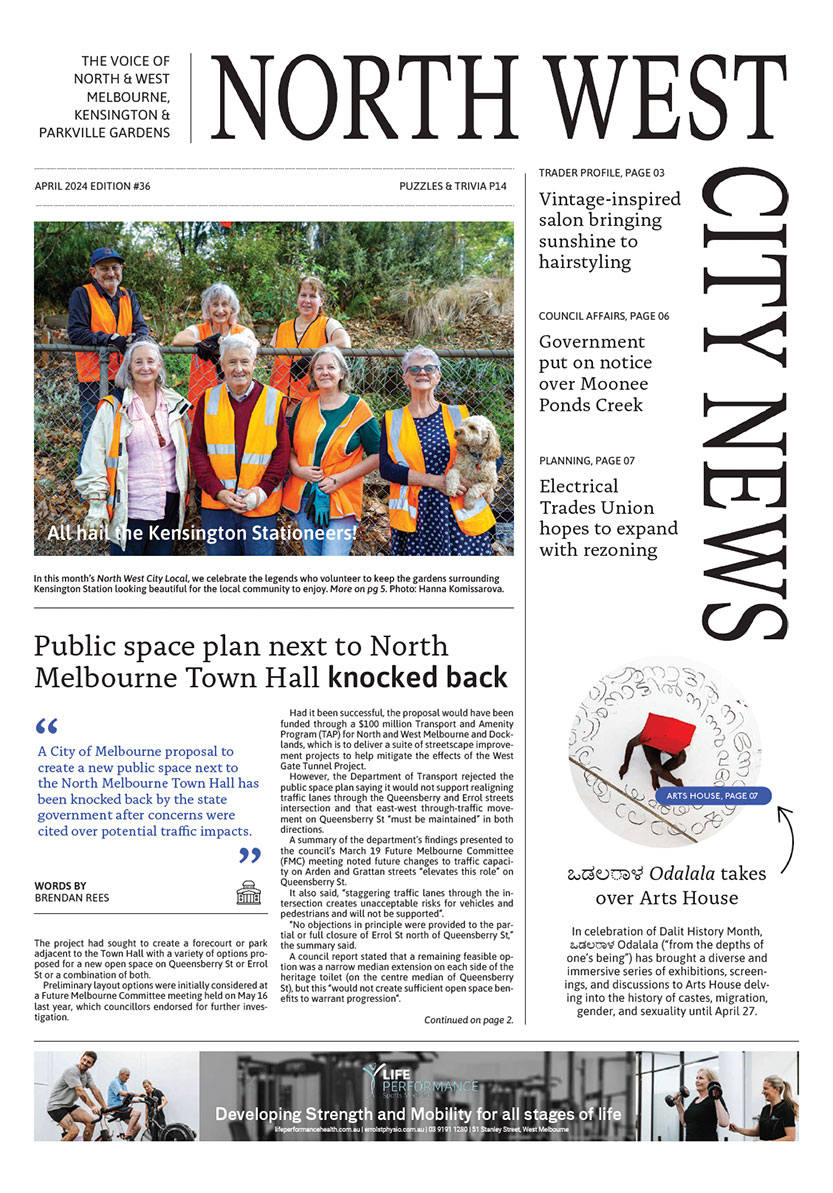High-rise public housing residents welcome new community health program
High-rise public housing residents in North Melbourne – who are still reeling from one of the harshest COVID-19 lockdown measures – are set to be supported by a new community health program.
The state government announced it would make available a program called Community Connectors that will see teams of residents employed to act as a “connector” to link people at their doorstep to preventative and early intervention health and social services while also providing access to vaccinations and testing.
The new program will build on the “lessons learnt and successes” of the state government’s High Risk Accommodation Responses (HRAR) program, which was delivered by community health services across the state during the pandemic.
The announcement comes as funding for a health concierge program, which had proven vital in disseminating health information during the pandemic as well as monitoring the health and wellbeing of residents at high-rise towers, ended on June 30. The program was established by Cohealth in partnership with the Department of Health and Human Services.
However, the threat of the program’s funding ceasing had prompted Victorian Greens leader and Member for Northern Metropolitan Region Dr Samantha Ratnam to call on the state government to urgently renew the HRAR funding as “community organisations will leave the estates and so many great local programs will end”.
Emebet, a North Melbourne high-rise resident who was employed as a health concierge until the end of June, said she was grateful the state government was
“acknowledging our incredible work”, which included COVID-19 testing, linking residents to support services, and providing health information for the culturally and linguistically diverse community.
She and other health concierges described themselves as “frontline soldiers” after having worked tirelessly to help residents overcome their initial misperceptions and apprehensions about the pandemic.
“We all have managed to build a high-level of trust among community members living in the public housing estate, the vast majority of whom feel confident in seeking health information, advice from medical professionals and government agencies,” Emebet, who did not wish to use her surname, said.
“This is our opportunity to make a better community and beautiful environment.”
But she added, “working as community healthcare workers, our role has not been finalised yet”, in reference to the rising COVID-19 cases and other viruses such as influenza swelling in winter.
Support services were also critical as cost-of-living pressures also pushed people to the brink, Emeret said, with many residents having sought her help including a disabled single mother seeking food relief, as she had become a trusted and familiar face in the high-rise towers.
“Everything is expensive, residents are finding it very hard, they can’t afford to buy groceries.”
Emebet, who came to Australia from Ethiopia in 1999 and has lived in the high-rise towers for 15 years, was among the thousands of residents who endured the state government’s hard lockdown of the public housing towers in Flemington and North Melbourne in July 2020, which they likened to a “hostile” environment.
In the wake of the lockdown, she said she and many residents were still healing from their traumatic experiences – with Emebet having suffered two panic attacks, both times in which she was taken to hospital.
“Luckily a vaccination team was downstairs, they had to call an ambulance for me. Had they not been there [through the health concierge program] I would not have made it to the emergency department in time.”
An investigation by the Victorian Ombudsman found the timing of the public housing lockdown “was not based on direct health advice and violated Victorian human rights laws” with some people having no access to food and medication while others waited a week for fresh air.
A Victorian Government spokesperson said the Community Connectors program would in many cases continue to employ residents who had been supported during the COVID-19 emergency.
“By leveraging existing community connections and embedding resident voice into the community health partnerships, the program will increase access to health services and improve well-being outcomes amongst communities,” the spokesperson said.
“It will also create sustainable employment pathways for residents and work together on localised health and wellbeing responses in partnership with residents and local communities.”
The program will also connect residents to social care services where relevant, such as family violence, child and family services, financial aid, and food relief.
The state government will fund the $8.5 million program, which will support public housing high-rise communities across the inner suburbs of Melbourne including North Melbourne, and Carlton.
Cohealth chief executive Nicole Bartholomeusz said the health concierge model had been a “gamechanger” and “we must not forget the lessons learned about the value of community empowerment in improving people’s own health and wellbeing”.
The Victorian Healthcare Association said while it welcomed the additional funding and continued focus on supporting Victorians in high-risk settings, it raised concerns about the impacts of short-term funding for programs like HRAR.
Caption: North Melbourne public housing residents Emebet and Ruth who have welcomed the announcement of a Community Connectors program.
Photography by Murray Enders

Jo Ryan unveils Ordered Chaos at Blender Studios





 Download the Latest Edition
Download the Latest Edition